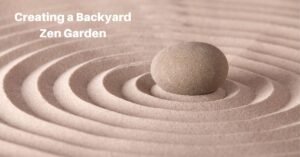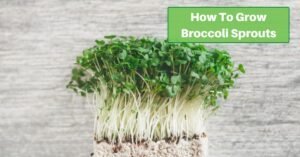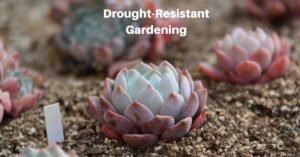Every once in a while, we come across a garden that has bamboo growing. It seems to have become more popular in recent years. Known for its rapid growth and elegant appearance, bamboo has gained both fame and infamy.
Is bamboo really a good garden plant? Let’s have a look at the pros and cons so you can decide for yourself.
The Pros:
- Rapid Growth: One of the most remarkable aspects of bamboo is its astonishing growth rate. Some bamboo species can shoot up several feet in a matter of days, creating a lush and vibrant garden in no time. This rapid growth is particularly appealing if you want quick results in your garden landscaping.
- Aesthetic Appeal: Bamboo’s sleek, upright stems and delicate leaves add an element of sophistication to any garden. It can create a peaceful, Zen-inspired space or serve as a backdrop for other plants. Bamboo’s graceful swaying in the breeze brings movement and tranquility to outdoor environments.
- Erosion Control: Bamboo has an extensive root system which can help bind soil together, making it an effective tool for preventing erosion. This is particularly valuable in areas prone to soil displacement due to heavy rainfall or if you have a steep slope in your landscape.
- Wildlife Habitat: Bamboo can provide valuable habitat and sustenance for various wildlife species, from insects to birds. Its dense foliage offers nesting sites and protection for small animals, contributing to the overall biodiversity of the garden.
- Privacy and Screening: Tall bamboo varieties can serve as excellent natural screens, offering privacy and shielding the garden from prying eyes or unwanted noise. Planted strategically, bamboo can create secluded corners perfect for meditation or quiet relaxation.
- Sustainable Resource: Bamboo is a highly renewable resource. Unlike slow-growing trees, bamboo reaches maturity within a few years.
The Cons:
- Aggressive Spreading: Bamboo’s rapid growth can be a double-edged sword. Some species have aggressive underground runners (rhizomes). These can lead to rampant spreading, infiltrating neighboring gardens or even damaging structures. Proper containment measures such as installing barriers are essential to prevent this issue. Bamboo rhizomes typically spread 6 inches deep or less, so the barriers don’t need to be too deep.
- Invasive Behavior: The unchecked spread of certain bamboo varieties classifies them as invasive species in certain regions. That means they can compete with and overcome native species. Be sure to select non-invasive bamboo species that are well-suited to the local environment.
- Maintenance Challenges: While bamboo’s quick growth is generally an advantage, it can also mean you have to regularly prune and thin it to prevent overcrowding and maintain the beauty of the garden.
- Allergies: Bamboo produces pollen, which can trigger allergies in sensitive individuals. Anyone with pollen allergies should be cautious when considering bamboo for their garden, especially if it’s planted near living or recreational areas.
- Lack of Flowering: Some bamboo species only flower and produce seeds after many years, sometimes even decades. This infrequent flowering can lead to unpredictable behavior and challenges in managing the plant’s life cycle.
- Soil Nutrient Depletion: Like a growing child, fast-growing bamboo requires a lot of nutrients. If not managed properly, this can lead to soil depletion and nutrient imbalances, negatively impacting the growth of other plants in the garden.
- Overcrowding and Shade: Bamboo can create stunning visuals but its dense growth can also lead to overcrowding and reduced sunlight penetration. This can hinder the growth of other plants that require sufficient light for photosynthesis.
Bamboo can be a captivating and versatile addition to any garden, but its suitability depends on various factors. Its charm and rapid growth make it a desirable choice, especially for those looking to transform their outdoor spaces quickly. However, gardeners must be aware of the potential drawbacks, such as invasive tendencies, maintenance challenges, and potential impacts on local ecosystems.
By selecting appropriate bamboo species, implementing containment strategies, and providing proper maintenance, you can enjoy the benefits of bamboo while limiting its potential downsides.
Be sure to research thoroughly, consult local gardening experts, and consider the specific needs of your garden space before adding bamboo. With careful planning and thoughtful consideration, it can be a beautiful addition that adds a touch of elegance and allure to any outdoor haven.








